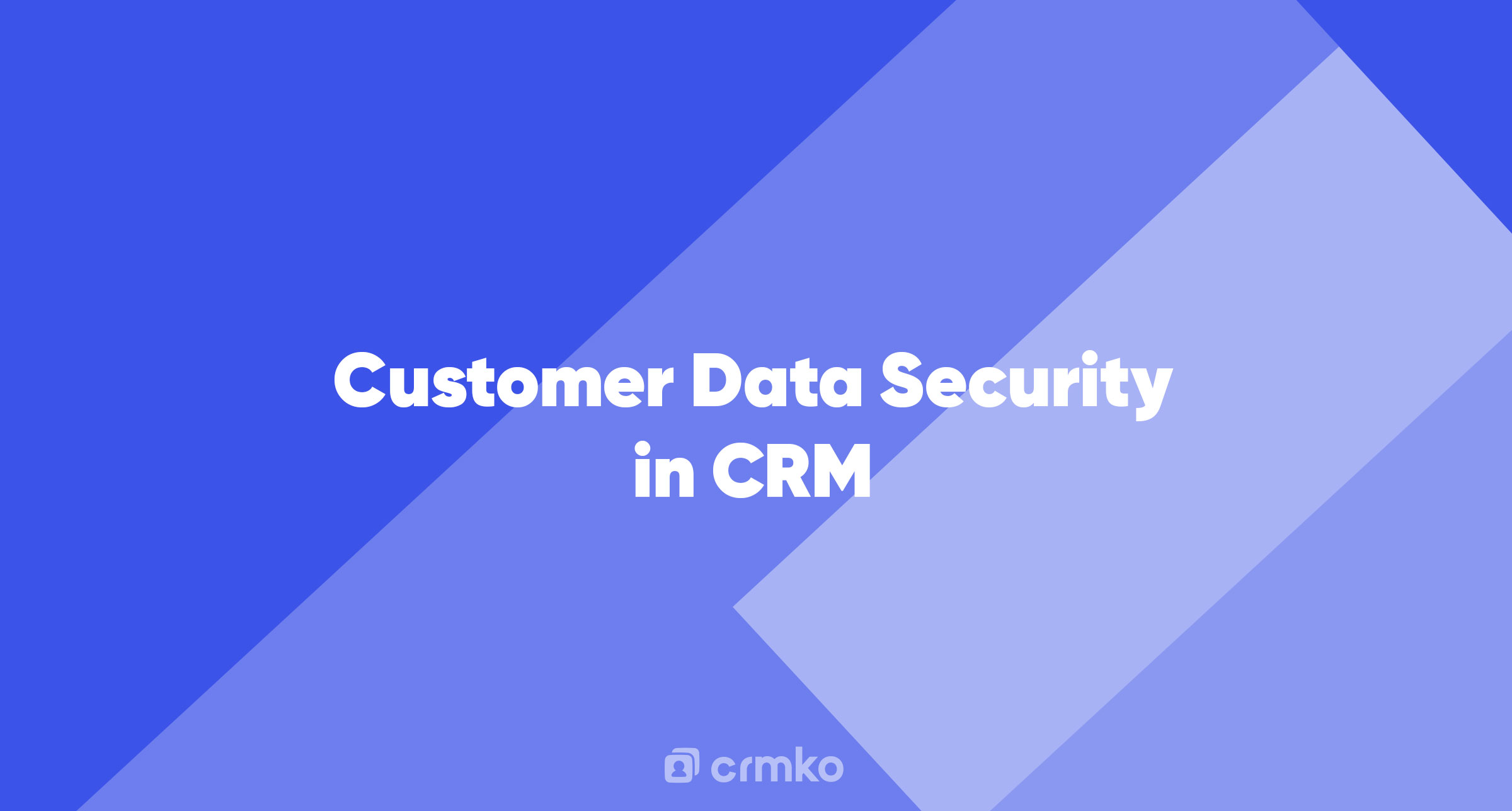In today's digital age, customer relationship management (CRM) systems play a crucial role in helping businesses manage and leverage their customer data effectively. However, with the increasing importance of data, there's a growing need to prioritize customer data security within CRM. In this article, we will explore the significance of customer data security in CRM and how it can be ensured to maintain trust and compliance.
1. Protecting Sensitive Customer Information
One of the primary concerns in CRM is safeguarding sensitive customer information. CRM systems house a wealth of data, including names, contact details, purchase histories, and more. It is imperative to implement robust security measures to prevent unauthorized access to this data. Secure login credentials, encryption, and multi-factor authentication are vital to protect this valuable information.
2. Compliance with Data Regulations
As data protection laws become more stringent worldwide, businesses must ensure that their CRM systems comply with these regulations. GDPR (General Data Protection Regulation) in Europe and CCPA (California Consumer Privacy Act) in the United States are examples of legislation aimed at safeguarding customer data. Compliance involves obtaining proper consent for data collection, providing transparency to customers, and allowing them to control their data.
3. Data Encryption and Access Control
Data encryption is a fundamental security measure for CRM systems. It involves encoding customer data to prevent unauthorized access. In addition, role-based access control is crucial in ensuring that only authorized personnel can view and manipulate sensitive information. This control mechanism limits the potential for data breaches.
4. Regular System Updates and Patches
CRM providers frequently release updates and security patches to address vulnerabilities and strengthen the system's defenses. Keeping your CRM software up to date is essential in maintaining its security. Failure to update leaves your system susceptible to known security flaws.
5. Employee Training
Human error remains one of the most common causes of data breaches. Comprehensive training programs for employees, particularly those with access to CRM data, are essential. Training should cover data protection policies, password management, and recognizing phishing attempts. Educated employees are the first line of defense in safeguarding customer data.
6. Data Backup and Recovery Plans
Data loss can occur due to unforeseen events such as hardware failures or cyberattacks. Implementing regular data backups and recovery plans is a security measure that ensures minimal disruption in case of data loss. This is crucial for business continuity and maintaining customer trust.
7. Third-Party Vendor Security
Many businesses use third-party applications and services integrated with their CRM systems. It is vital to assess the security measures of these vendors and ensure they meet your data protection standards. These third parties can pose a risk to your customer data if not properly vetted.
Conclusion
Customer data security in CRM is non-negotiable. It is not only a matter of safeguarding sensitive information but also a question of trust. Customers entrust their personal details to businesses, and it's the responsibility of those businesses to protect that trust. Implementing strong security measures, compliance with data regulations, regular training, and a proactive approach to data protection are essential steps toward securing customer data within CRM systems. This ensures not only the protection of customer information but also the long-term success and reputation of the business.
